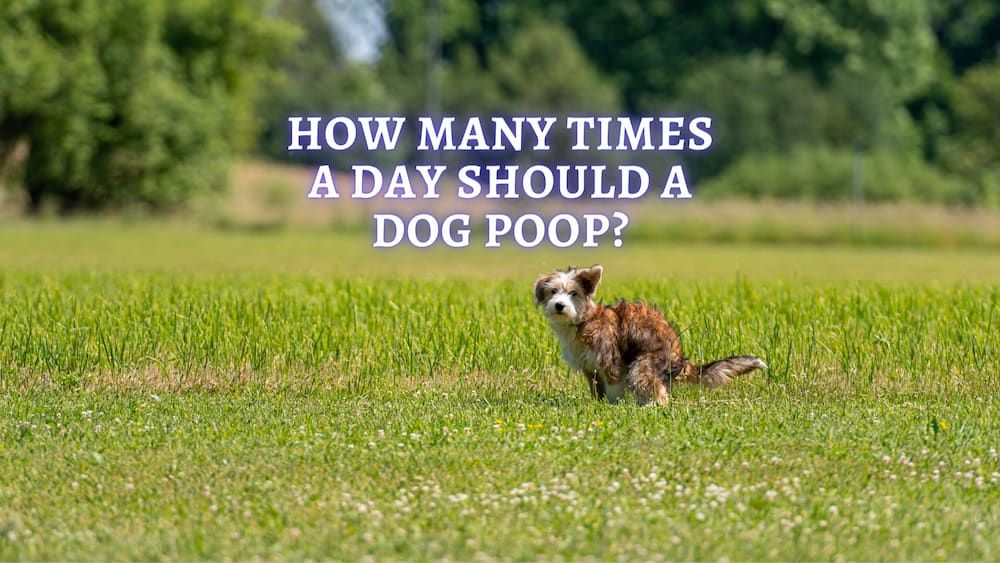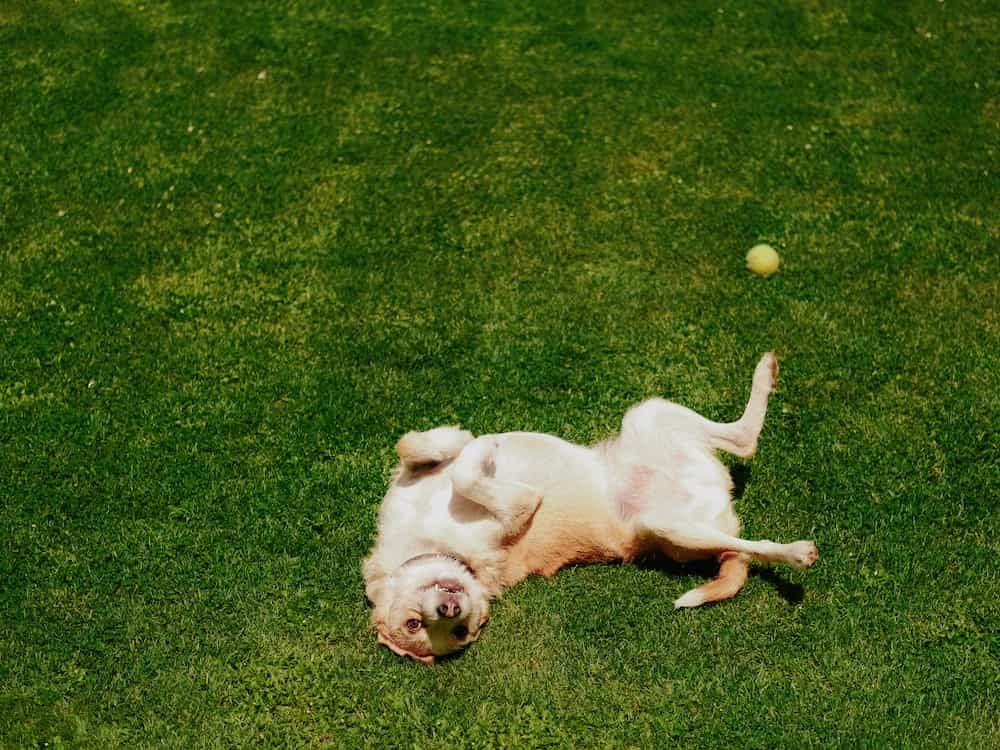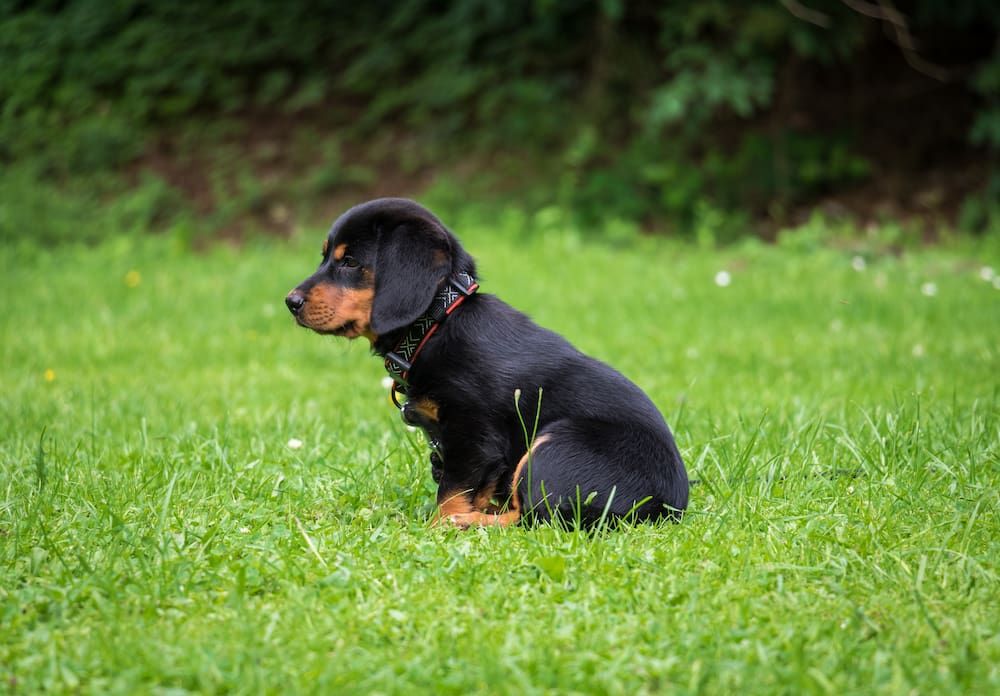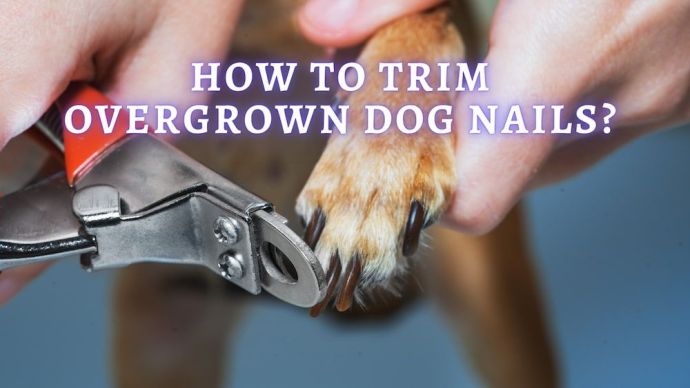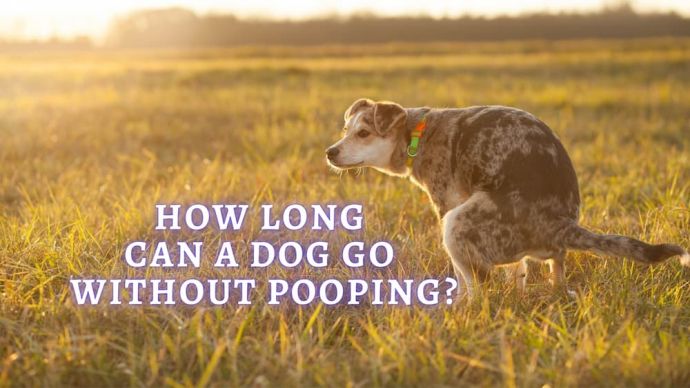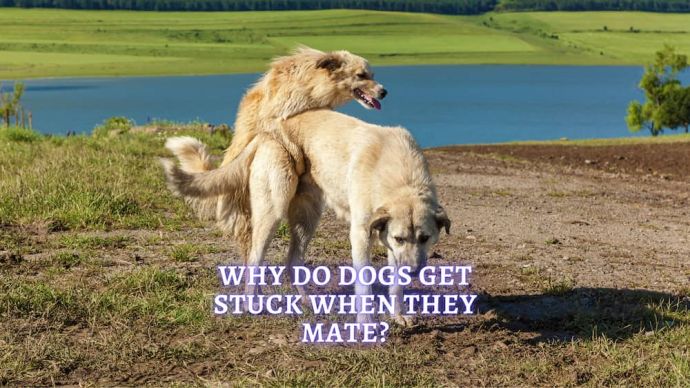How Many Times a Day Should a Dog Poop? (Vet Advice)
Written by:
Author: Carol Young
Carol has worked in specialty, emergency, mixed animal and general veterinary practices, and enjoys all aspects of veterinary medicine. Her special areas of interest include anesthesia, critical care, emergency, dentistry, internal medicine and small animal nutrition.
View all 62 articlesLearn about our editorial process and veterinary review board.
Viewed: 527
Updated on: 05/27/2022
As dog owners, you’re probably all too familiar with picking up dog doo-doo, and when it comes to their poops, you may wonder how many times your canine friend should be defecating. The answer to this question depends on several factors, such as the age and size of your pup, their diet, and breed. Although it’s normal for younger dogs and puppies to poop up to five or six times a day (maybe even more), most adult canines will defecate at least twice daily. However, if you are concerned about your dog’s bowel movements and whether or not your best friend is pooping often enough, read on for some tips and what to do if your dog or puppy is experiencing issues with defecating.
How Many Times a Day Should a Dog Poop?
When it comes to pooping, veterinarians say that a healthy canine should generally move his bowels at least once a day. Most adult dogs will defecate two or three times a day, and as mentioned above, younger and growing puppies poop up to six times a day (this is because puppies are growing and their intestines are still developing).
Most adult pups will need to poop 8-12 hours after digesting a previous meal, and if you feed twice daily, you’ll probably notice that your canine companion will defecate about an hour to four hours (or more) after eating each meal. If you feed in the mornings and the evenings, you’ll notice that your pooch may need to potty after breakfast and after dinner. However, every pup is unique and may defecate at whatever time is biologically needed.
Most puppies and growing pups will need to go potty quite often during the day, and this is especially the case for young puppies. Young puppies six to ten weeks old may have to defecate after each meal, and as a general rule, it’s best to get them to potty after eating to get them house-trained. Generally, puppies up to three months old can hold their bowels for about four hours before needing a potty break.
If you are worried that your furry friend isn’t pooping enough, try a bit of exercise. Just as with people, regular exercise can help with regularity, so try taking Fido for a walk. Most dogs poop on a walk because exercise makes food move faster through the large intestine.
As with people, you may notice that your dog may have to poop at random or irregular times. This may be due to increased fiber in the diet, a change in diet, or stress. If your pooch has eaten a bigger than normal meal or has eaten something out of the ordinary, this may lead to an upset stomach and runny stools.
READ MORE: How Long Does it Take a Dog to Digest Food?
What Poop Can Say About Your Dog’s Health?
Believe it or not, poop can indicate your dog’s overall health, and making note of the characteristics of poop can be a good way to track any digestive issues. As an owner, it’s good to know how to identify healthy poop vs. abnormal poop.
Characteristics of Healthy Poop
Healthy stools in dogs should be compact, moist, and easy to pick up. As far as consistency, it should feel a bit like Play-Doh. Also, healthy feces should be firm, not hard, and in some cases, segmented and log-shaped.
Characteristics of Abnormal Poop
Abnormal stools can range from watery to soggy, mucousy or black, hard, and tarry. For example, diarrhea is often an indicator of intestinal upset, colitis, or parasites. If your pup’s poop is hard or dry, it could be a sign of lack of fiber in the diet or constipation. If you are concerned about the look and consistency of your dog’s poop, contact your veterinarian. Your veterinarian may want to conduct a fecal exam to look for parasites or high bacterial loads.
If your dog has bloody stools, contact your veterinarian right away. Blood in the feces is never normal and may be a sign of a health issue. If your pet has watery diarrhea, and if it has been going on for a few days, don’t wait to contact your veterinarian. Diarrhea can cause dehydration and electrolyte imbalances. Also, if you notice that your canine companion’s stools contain white specs that look like rice grains, it may indicate tapeworms.
RELATED: What Are The Little White Specks In Dog Poop? (Vet Advice)
What Causes Changes in a Dog’s Poop?
Changes in your dog’s poop can be caused by several things, which include the following.
- Changes in diet. When feeding your dog, veterinarians always recommend being consistent. If you plan to change your dog’s diet, make the transition gradual. For example, slowly scale back the old food and introduce the new food over five to seven days. This will allow your dog’s gastrointestinal (GI) tract to adapt to the new food without experiencing any tummy upset.
- Inappropriate ingestion. Most dogs love to eat, and they can also tend to eat things they shouldn’t. For example, if your dog gets into the garbage, the cat food, or pup eats something unusual, this can cause diarrhea, vomiting, or bloody stools. If you think that your pooch has eaten something he shouldn’t have, contact your veterinarian as soon as possible.
- Colitis. This condition is caused by inflammation of the large intestine. Colitis can be caused by several things such as stress, change in diet, or parasites. Symptoms often include diarrhea, mucousy stools, or bloody stools. If you think that your dog is having a bout of colitis, contact your veterinarian. Depending on the cause, your pooch may need some medications or antibiotics to help relieve the inflammation.
- Other health issues. Other health problems such as gall bladder, biliary or pancreatic issues can affect your dog’s stool. For example, greasy, mucousy stools can be a sign of pancreatitis, black, tarry stools may be an indicator of an upper gastrointestinal bleed, and orange or yellow stools may be a sign of liver or biliary problems. As a general rule, when in doubt, contact your veterinarian.
What Does Normal Dog Poop Look Like?
As mentioned, healthy stools in dogs should be firm, compact, moist, and easy to pick up. Healthy poop should be brown, solid, and a bit squishy and be like one log-shaped piece. Normal poop should have four main characteristics: Color, content, consistency, and coating.
- Color depends on what your dog eats and can range in shades from golden brown to dark brown, depending on the color of the dog food.
- Content is determined by your veterinarian. For example, all poop has certain normal bacteria, but your veterinarian can conduct a fecal exam to determine if any abnormal bacteria such as Salmonella or Clostridium are present in your dog’s poop. A fecal test can also rule out any parasites or other issues with your pup’s poop.
- Healthy feces should also be a bit firm in its consistency, just like Play-Doh Ideally, and should be log-shaped.
- Finally, healthy dog poop should not have a coating on it at all, such as mucous or blood. If your pooch has a brown, slightly firm, and coating-free poop with nothing out of the ordinary sticking out of it, you can rest assured that things are OK.
How Does Fiber Affect Dog Poop?
Fiber does affect your dog’s stools, and just like in people, fiber is good for the average, healthy pup. Fiber adds moisture to the GI tract and promptly helps food move from the stomach to the intestines. As with people, fiber is also a great substance for your dog’s digestive tract because it is fermented into fatty acids by the beneficial bacteria found naturally in your pet’s intestines. These fatty acids then help to prevent bad bacteria overgrowth and help reduce GI inflammation.
What Happens If Your Dog Is Pooping Less?
If your dog is not pooping as much as you would like or is straining to defecate, it could be a sign of a health problem. For example, if they are not eating enough, they will defecate less. Also, if your dog is unable to poop, or straining to poop, it may be a sign of constipation. If you notice your pet struggling to defecate, contact your veterinarian to rule out any health issues such as impacted anal glands, back pain, or a GI foreign body. However, if your dog is eating and drinking well, and is normally active, maybe adding a bit of fiber to the diet such as canned pumpkin or green beans may be in order.
READ MORE: How Long Can a Dog Go Without Pooping?
What If Your Dog Is Pooping More?
If you notice your pooch pooping more than usual, consider what you are feeding him. If you have changed his diet, added fiber, or increased the amount you are feeding, these could be contributing factors. Also, if you have a young puppy, pooping more often is perfectly normal. As a rule, if you have any questions or concerns, contact your local veterinarian.
What About Puppies?
As mentioned above, puppies and young dogs poop a lot more than older dogs. This is because young pups are growing, they have smaller stomachs and intestines, and frankly just need to defecate more often than adults (they can’t hold as much poop in their colons as a bigger, adult dogs). As puppies grow and mature, they can hold more, and thus poop less often.
FAQ
Is it OK if my dog only poops once a day?
If you have a healthy, adult dog, pooping once a day can be perfectly normal, and should not be a reason for concern if he is acting normally and eating and drinking. Again, the frequency of defecation in dogs is dependent on the dog’s diet, age, and size. Bigger dogs such as Great Danes may poop more than once daily, and smaller dogs such as toy poodles may need to poop just once daily.
Do dogs need to poop twice a day?
Generally, most healthy adult dogs will poop twice a day, but this depends on the diet, overall health, size, and breed. If your dog is healthy and happy, pooping twice a day is perfectly normal.
Should dogs poop after every meal?
Some dogs may poop after every meal, but it may take several hours afterward. Puppies may poop after every meal due to their small size, and it may take several hours after a meal for adult dogs to defecate. Every animal is different, and the frequency of pooping after a meal depends on the diet, health, and size of the dog.
 Dog Care Why Do Dogs Wink? Health and Behavioral Reasons Why Do Dogs Wink At You
Dog Care Why Do Dogs Wink? Health and Behavioral Reasons Why Do Dogs Wink At You - 1019
- 0
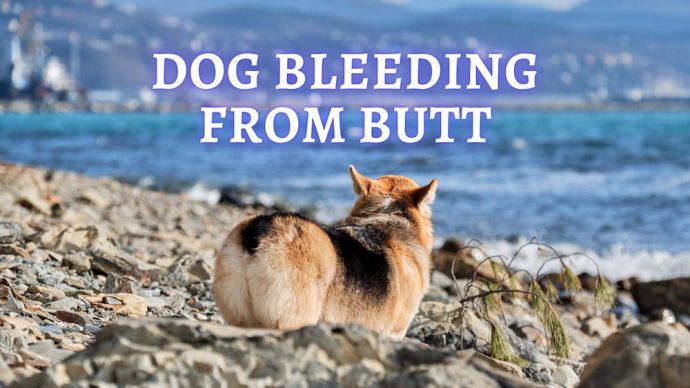 Dog Care Why Is My Dog Bleeding From Its Butt? Causes and treatment of rectal bleeding in the dog
Dog Care Why Is My Dog Bleeding From Its Butt? Causes and treatment of rectal bleeding in the dog - 22076
- 0
 Dog Veterinary Tips Why is my Dog throwing up: Causes and Preventing (Veterinary Advice)
Dog Veterinary Tips Why is my Dog throwing up: Causes and Preventing (Veterinary Advice) - 23424
- 5
 Dog Care Why Is My Dog Bleeding From Its Butt? Causes and treatment of rectal bleeding in the dog
Dog Care Why Is My Dog Bleeding From Its Butt? Causes and treatment of rectal bleeding in the dog - 22076
- 0
 Dog Care My Dog Keeps Scratching His Mouth: Reasons Why Your Dog Scratching Face
Dog Care My Dog Keeps Scratching His Mouth: Reasons Why Your Dog Scratching Face - 17561
- 1









